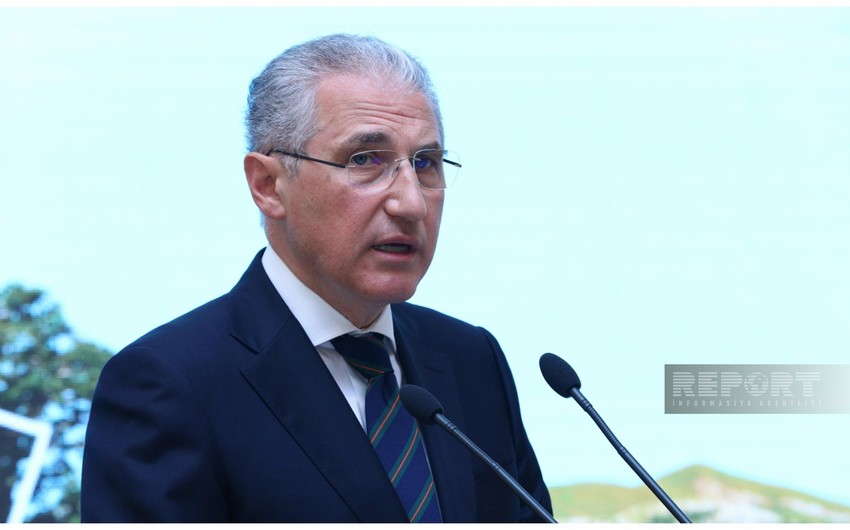Azerbaijan is calling for strengthened regional cooperation, particularly with Central Asian countries, to address the climate crisis affecting the Caspian Sea, Mukhtar Babayev, Azerbaijan’s presidential representative on climate issues and president of the UN Climate Change Conference (COP29), said in an interview with The Times of Central Asia.
Report quotes Babayev as saying Azerbaijan has integrated artificial intelligence (AI) into its national programs, fostering regional collaboration in climate science. He noted that building shared scientific capacity is a crucial first step toward establishing a unified agenda for tackling climate change.
"The global landscape is evolving rapidly, with new technologies and scientific advances offering better tools for decision-making. Artificial intelligence, for instance, can improve forecasting and scenario modeling," he said.
He also highlighted that regional actions have global implications, and the Caspian experience could influence international climate policy.
The COP29 president pointed out that Central Asia and the South Caucasus, sharing a common ecosystem and borders with the Caspian Sea, face severe climate pressures. The most pressing issue is water scarcity, which has worsened in recent years due to climate change. This has contributed to desertification across the region and declining water levels in the Caspian Sea, Aral Sea, and Iran's Lake Urmia.
"The drying of the Caspian Sea is one of the central challenges. At the recent Nevsky International Environmental Congress, Azerbaijan proposed a summit to address this crisis," Babayev said adding that the Caspian has now fallen below the lowest level recorded since the 19th century.
"Experts widely agree that the Caspian’s water level will continue to drop over the next 15–20 years," he said.
Babayev noted that the crisis is particularly acute for the Atyrau and Aktau regions of Kazakhstan, affecting agriculture, infrastructure, marine energy operations, and ports. "While the situation cannot be reversed quickly, coordinated action is essential, especially measures to protect biodiversity and boost the water flow from key rivers such as the Kura, Ural, Terek, Samur, and Volga, which have seen significant declines," he said.
He stressed that amidst water scarcity, there is a risk of regional competition. A unified political approach among Caspian states could prevent tensions and harmonize strategies for restoring the Caspian ecosystem.
"The Aral Sea offers a stark precedent; its desiccation triggered not only environmental degradation but also social upheaval, including mass migration. Our focus now must be on mitigation and adaptation," Babayev said.




